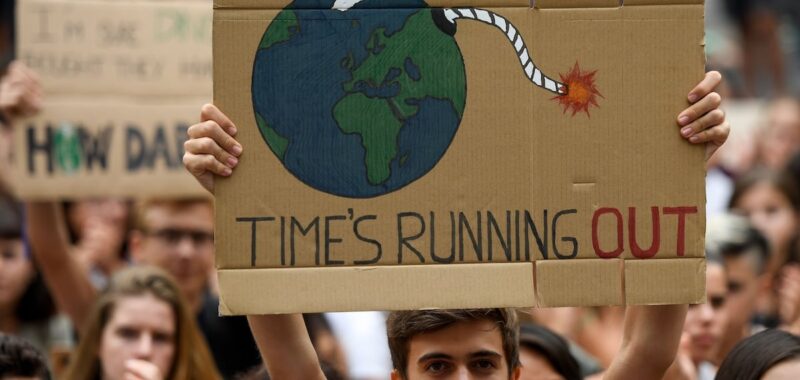
Though most of the fashion world has spent this week with an eye on Milan and Paris, for those focused on sustainability, the place to be was New York.
Since Sunday, the cityâs conference centres, hotels and cocktail hours have been clogged with dignitaries and executives in town for Climate Week â an event that runs alongside the UN General Assembly and has been varyingly described as âBurning Man for climate geeksâ and the âDavos of climate.â Bloomberg dubbed this yearâs edition the âunofficial climate summit of the year,â flagging that fewer business leaders and bankers are expected to show up to the UNâs annual COP climate summit in Baku, Azerbaijan in November than usual.
In contrast to last year, fashion had a robust presence. Several companies and industry associations hosted their own events and CEOs from companies including Gap, Patagonia and Pandora made an appearance.
But despite the buzz, efforts to move the needle on climate action felt as gridlocked as the traffic in midtown Manhattan.
This year is on track to be the worldâs hottest on record and global emissions keep rising. While there are pockets of progress, many fashion companies arenât on course to hit climate goals, even as deadlines set for 2025 and 2030 loom. A report published Thursday by nonprofit Textile Exchange found that the industry is increasing its reliance on plastic, with production of virgin fossil fuel-based synthetic fibres like polyester growing from 67 million tonnes to 75 million tonnes last year.
âWe need to get more real,â said Federica Marchionni, chief executive officer at sustainable fashion advocacy organisation Global Fashion Agenda. âWe need many more real projects on the ground that can really reduce emissions and get a just transition.â
But a smattering of new commitments announced by fashion companies this week (chief among them a nascent programme to help finance moves to decarbonise cotton production led by the Fashion Pact, a CEO-led coalition of brands) did as much to highlight how far the industry still needs to go as to signal progress. The tone at talks across the week veered from relentless optimism to group therapy session.
Meanwhile, sustainability is slipping down the priority list for corporate leaders, according to an analysis of CEO surveys published by consultancy firm Bain & Co earlier this month. Fashion executives are grappling with a sluggish market, geopolitical uncertainty and disruptive new technologies that are diverting attention from climate risks, which are hard to value, often cost money and frequently deliver intangible returns.
At a fundamental level, there is a conflict between brandsâ drive for growth and their climate commitments, since production volumes correlate with environmental impact. If there was any doubt over where most of the industryâs priorities lie, Bank of America published a clarifying note that coincided with the start of Climate Week. In an analysis of the luxury sectorâs slowdown, the bank recommended brands abandon the âquiet luxuryâ trend (which some had seen as an opportunity to promote a less, but better approach to consumption) and revert instead to focus on driving volume by emphasising newness and fashion content.
To be sure, the real action at these summits happens off stage and behind closed doors. The opportunity is to connect with policymakers, financiers, innovators and others from outside the sector who are all needed to tackle some of the structural challenges to action. Incoming legislation also means sustainability canât fall off the agenda altogether.
Still, the industry should remember that while talk is cheap, inaction will be expensive. Extreme weather could wipe tens of billions of dollars from garment sector earnings and significantly dent brandsâ operating profits by 2030, according to a study published last year that examined heat and flooding risk in just a handful of apparel manufacturing hubs.
âEither we collectively win or we lose together,â said Saqib Sohail, responsible business projects lead at Pakistan-based denim manufacturer Artistic Milliners, at an event in support of a New York bill that would increase the industryâs accountability for its environmental impact this week.

